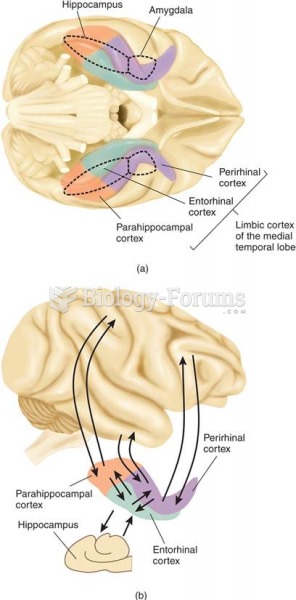|
|
|
Though methadone is often used to treat dependency on other opioids, the drug itself can be abused. Crushing or snorting methadone can achieve the opiate "rush" desired by addicts. Improper use such as these can lead to a dangerous dependency on methadone. This drug now accounts for nearly one-third of opioid-related deaths.
According to the FDA, adverse drug events harmed or killed approximately 1,200,000 people in the United States in the year 2015.
This year, an estimated 1.4 million Americans will have a new or recurrent heart attack.
Human neurons are so small that they require a microscope in order to be seen. However, some neurons can be up to 3 feet long, such as those that extend from the spinal cord to the toes.
Fungal nail infections account for up to 30% of all skin infections. They affect 5% of the general population—mostly people over the age of 70.
 Earth’s history spans 4.5 billion years. Geologists and paleontologists have pieced together the his
Earth’s history spans 4.5 billion years. Geologists and paleontologists have pieced together the his
 On March 25, 1911, as scores of young factory girls leaped to their deaths from the eighth, ninth, a
On March 25, 1911, as scores of young factory girls leaped to their deaths from the eighth, ninth, a





